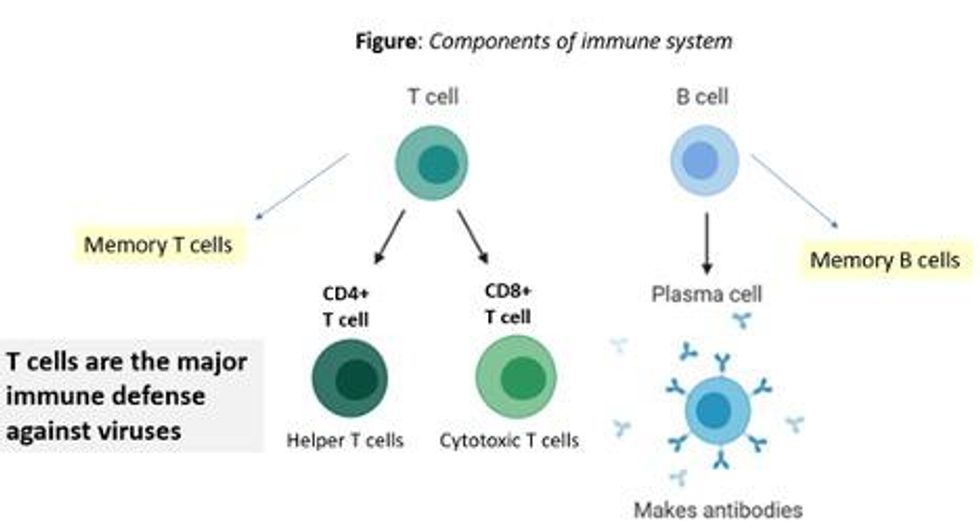Don’t fear AI, fear power-hungry humans

Story by Big Think
We live in strange times, when the technology we depend on the most is also that which we fear the most. We celebrate cutting-edge achievements even as we recoil in fear at how they could be used to hurt us. From genetic engineering and AI to nuclear technology and nanobots, the list of awe-inspiring, fast-developing technologies is long.
However, this fear of the machine is not as new as it may seem. Technology has a longstanding alliance with power and the state. The dark side of human history can be told as a series of wars whose victors are often those with the most advanced technology. (There are exceptions, of course.) Science, and its technological offspring, follows the money.
This fear of the machine seems to be misplaced. The machine has no intent: only its maker does. The fear of the machine is, in essence, the fear we have of each other — of what we are capable of doing to one another.
How AI changes things
Sure, you would reply, but AI changes everything. With artificial intelligence, the machine itself will develop some sort of autonomy, however ill-defined. It will have a will of its own. And this will, if it reflects anything that seems human, will not be benevolent. With AI, the claim goes, the machine will somehow know what it must do to get rid of us. It will threaten us as a species.
Well, this fear is also not new. Mary Shelley wrote Frankenstein in 1818 to warn us of what science could do if it served the wrong calling. In the case of her novel, Dr. Frankenstein’s call was to win the battle against death — to reverse the course of nature. Granted, any cure of an illness interferes with the normal workings of nature, yet we are justly proud of having developed cures for our ailments, prolonging life and increasing its quality. Science can achieve nothing more noble. What messes things up is when the pursuit of good is confused with that of power. In this distorted scale, the more powerful the better. The ultimate goal is to be as powerful as gods — masters of time, of life and death.
Should countries create a World Mind Organization that controls the technologies that develop AI?
Back to AI, there is no doubt the technology will help us tremendously. We will have better medical diagnostics, better traffic control, better bridge designs, and better pedagogical animations to teach in the classroom and virtually. But we will also have better winnings in the stock market, better war strategies, and better soldiers and remote ways of killing. This grants real power to those who control the best technologies. It increases the take of the winners of wars — those fought with weapons, and those fought with money.
A story as old as civilization
The question is how to move forward. This is where things get interesting and complicated. We hear over and over again that there is an urgent need for safeguards, for controls and legislation to deal with the AI revolution. Great. But if these machines are essentially functioning in a semi-black box of self-teaching neural nets, how exactly are we going to make safeguards that are sure to remain effective? How are we to ensure that the AI, with its unlimited ability to gather data, will not come up with new ways to bypass our safeguards, the same way that people break into safes?
The second question is that of global control. As I wrote before, overseeing new technology is complex. Should countries create a World Mind Organization that controls the technologies that develop AI? If so, how do we organize this planet-wide governing board? Who should be a part of its governing structure? What mechanisms will ensure that governments and private companies do not secretly break the rules, especially when to do so would put the most advanced weapons in the hands of the rule breakers? They will need those, after all, if other actors break the rules as well.
As before, the countries with the best scientists and engineers will have a great advantage. A new international détente will emerge in the molds of the nuclear détente of the Cold War. Again, we will fear destructive technology falling into the wrong hands. This can happen easily. AI machines will not need to be built at an industrial scale, as nuclear capabilities were, and AI-based terrorism will be a force to reckon with.
So here we are, afraid of our own technology all over again.
What is missing from this picture? It continues to illustrate the same destructive pattern of greed and power that has defined so much of our civilization. The failure it shows is moral, and only we can change it. We define civilization by the accumulation of wealth, and this worldview is killing us. The project of civilization we invented has become self-cannibalizing. As long as we do not see this, and we keep on following the same route we have trodden for the past 10,000 years, it will be very hard to legislate the technology to come and to ensure such legislation is followed. Unless, of course, AI helps us become better humans, perhaps by teaching us how stupid we have been for so long. This sounds far-fetched, given who this AI will be serving. But one can always hope.
This article originally appeared on Big Think, home of the brightest minds and biggest ideas of all time.
7 Reasons Why We Should Not Need Boosters for COVID-19
A top infectious disease physician explains why immunity derived from natural infection and the vaccines should be long-lasting.
There are at least 7 reasons why immunity after vaccination or infection with COVID-19 should likely be long-lived. If durable, I do not think boosters will be necessary in the future, despite CEOs of pharmaceutical companies (who stand to profit from boosters) messaging that they may and readying such boosters. To explain these reasons, let's orient ourselves to the main components of the immune system.

There are two major arms of the immune system: B cells (which produce antibodies) and T cells (which are formed specifically to attack and kill pathogens). T cells are divided into two types, CD4 cells ("helper" T cells) and CD8 cells ("cytotoxic" T cells).
Each arm, once stimulated by infection or vaccine, should hopefully make "memory" banks. So if the body sees the pathogen in the future, these defenses should come roaring back to attack the virus and protect you from getting sick. Plenty of research in COVID-19 indicates a likely long-lasting response to the vaccine or infection. Here are seven of the most compelling reasons:
REASON 1: Memory B Cells Are Produced By Vaccines and Natural Infection
In one study, 12 volunteers who had never had Covid-19--and were fully vaccinated with two Pfizer/BioNTech shots-- underwent biopsies of their lymph nodes. This is where memory B cells are stored in places called "germinal centers". The biopsies were performed three, four, six, and seven weeks after the first mRNA vaccine shot, and were stained to reveal that germinal center memory B cells in the lymph nodes increased in concentration over time.
Natural infection also generates memory B cells. Even after antibody levels wane over time, strong memory B cells were detected in the blood of individuals six and eight months after infection in different studies. Indeed, the half-lives of the memory B cells seen in the study examining patients 8 months after COVID-19 led the authors to conclude that "B cell memory to SARS-CoV-2 was robust and is likely long-lasting." Reason #2 tells us that memory B cells can be active for a very long time indeed.
REASON #2: Memory B Cells Can Produce Neutralizing Antibodies If They See Infection Again Decades Later
Demonstrated production of memory B cells after vaccination or natural infection with COVID-19 is so important because memory B cells, once generated, can be activated to produce high levels of neutralizing antibodies against the pathogen even if encountered many years after the initial exposure. In one amazing study (published in 2008), researchers isolated memory B cells against the 1918 flu strain from the blood of 32 individuals aged 91-101 years. These people had been born on or before 1915 and had survived that pandemic.
Their memory B cells, when exposed to the 1918 flu strain in a test tube, generated high levels of neutralizing antibodies against the virus -- antibodies that then protected mice from lethal infection with this deadly strain. The ability of memory B cells to produce complex antibody responses against an infection nine decades after exposure speaks to their durability.
REASON #3: Vaccines or Natural Infection Trigger Strong Memory T Cell Immunity
All of the trials of the major COVID-19 vaccine candidates measured strong T cell immunity following vaccination, most often assessed by measuring SARS-CoV-2 specific T cells in the phase I/II safety and immunogenicity studies. There are a number of studies that demonstrate the production of strong T cell immunity to COVID-19 after natural infection as well, even when the infection was mild or asymptomatic.
The same study that showed us robust memory B cell production 8 months after natural infection also demonstrated strong and sustained memory T cell production. In fact, the half-lives of the memory T cells in this cohort were long (~125-225 days for CD8+ and ~94-153 days for CD4+ T cells), comparable to the 123-day half-life observed for memory CD8+ T cells after yellow fever immunization (a vaccine usually given once over a lifetime).
A recent study of individuals recovered from COVID-19 show that the initial T cells generated by natural infection mature and differentiate over time into memory T cells that will be "put in the bank" for sustained periods.
REASON #4: T Cell Immunity Following Vaccinations for Other Infections Is Long-Lasting
Last year, we were fortunate to be able to measure how T cell immunity is generated by COVID-19 vaccines, which was not possible in earlier eras when vaccine trials were done for other infections (such as measles, mumps, rubella, pertussis, diphtheria). Antibodies are just the "tip of the iceberg" when assessing the response to vaccination, but were the only arm of the immune response that could be measured following vaccination in the past.
Measuring pathogen-specific T cell responses takes sophisticated technology. However, T cell responses, when assessed years after vaccination for other pathogens, has been shown to be long-lasting. For example, in one study of 56 volunteers who had undergone measles vaccination when they were much younger, strong CD8 and CD4 cell responses to vaccination could be detected up to 34 years later.
REASON #5: T Cell Immunity to Related Coronaviruses That Caused Severe Disease is Long-Lasting
SARS-CoV-2 is a coronavirus that causes severe disease, unlike coronaviruses that cause the common cold. Two other coronaviruses in the recent past caused severe disease, specifically Severely Acute Respiratory Distress Syndrome (SARS) in late 2002-2003 and Middle East Respiratory Syndrome (MERS) in 2011.
A study performed in 2020 demonstrated that the blood of 23 recovered SARS patients possess long-lasting memory T cells that were still reactive to SARS 17 years after the outbreak in 2003. Many scientists expect that T cell immunity to SARS-CoV-2 will be equally durable to that of its cousin.
REASON #6: T Cell Responses from Vaccination and Natural Infection With the Ancestral Strain of COVID-19 Are Robust Against Variants
Even though antibody responses from vaccination may be slightly lower against various COVID-19 variants of concern that have emerged in recent months, T cell immunity after vaccination has been shown to be unperturbed by mutations in the spike protein (in the variants). For instance, T cell responses after mRNA vaccines maintained strong activity against different variants (including P.1 Brazil variant, B.1.1.7 UK variant, B.1.351 South Africa variant and the CA.20.C California variant) in a recent study.
Another study showed that the vaccines generated robust T cell immunity that was unfazed by different variants, including B.1.351 and B.1.1.7. The CD4 and CD8 responses generated after natural infection are equally robust, showing activity against multiple "epitopes" (little segments) of the spike protein of the virus. For instance, CD8 cells responds to 52 epitopes and CD4 cells respond to 57 epitopes across the spike protein, so that a few mutations in the variants cannot knock out such a robust and in-breadth T cell response. Indeed, a recent paper showed that mRNA vaccines were 97.4 percent effective against severe COVID-19 disease in Qatar, even when the majority of circulating virus there was from variants of concern (B.1.351 and B.1.1.7).
REASON #7: Coronaviruses Don't Mutate Quickly Like Influenza, Which Requires Annual Booster Shots
Coronaviruses are RNA viruses, like influenza and HIV (which is actually a retrovirus), but do not mutate as quickly as either one. The reason that coronaviruses don't mutate very rapidly is that their replicating mechanism (polymerase) has a strong proofreading mechanism: If the virus mutates, it usually goes back and self-corrects. Mutations can arise with high rates of replication when transmission is very frequent -- as has been seen in recent months with the emergence of SARS-CoV-2 variants during surges. However, the COVID-19 virus will not be mutating like this when we tamp down transmission with mass vaccination.
In conclusion, I and many of my infectious disease colleagues expect the immunity from natural infection or vaccination to COVID-19 to be durable. Let's put discussion of boosters aside and work hard on global vaccine equity and distribution since the pandemic is not over until it is over for us all.
Professor Tim Caulfield stops by the "Making Sense of Science" podcast this month to discuss the infodemic around COVID-19 and how to deal with it.
The "Making Sense of Science" podcast features interviews with leading medical and scientific experts about the latest developments and the big ethical and societal questions they raise. This monthly podcast is hosted by journalist Kira Peikoff, founding editor of the award-winning science outlet Leaps.org.
Hear the 30-second trailer:
Listen to the whole episode:
.
Kira Peikoff was the editor-in-chief of Leaps.org from 2017 to 2021. As a journalist, her work has appeared in The New York Times, Newsweek, Nautilus, Popular Mechanics, The New York Academy of Sciences, and other outlets. She is also the author of four suspense novels that explore controversial issues arising from scientific innovation: Living Proof, No Time to Die, Die Again Tomorrow, and Mother Knows Best. Peikoff holds a B.A. in Journalism from New York University and an M.S. in Bioethics from Columbia University. She lives in New Jersey with her husband and two young sons. Follow her on Twitter @KiraPeikoff.


